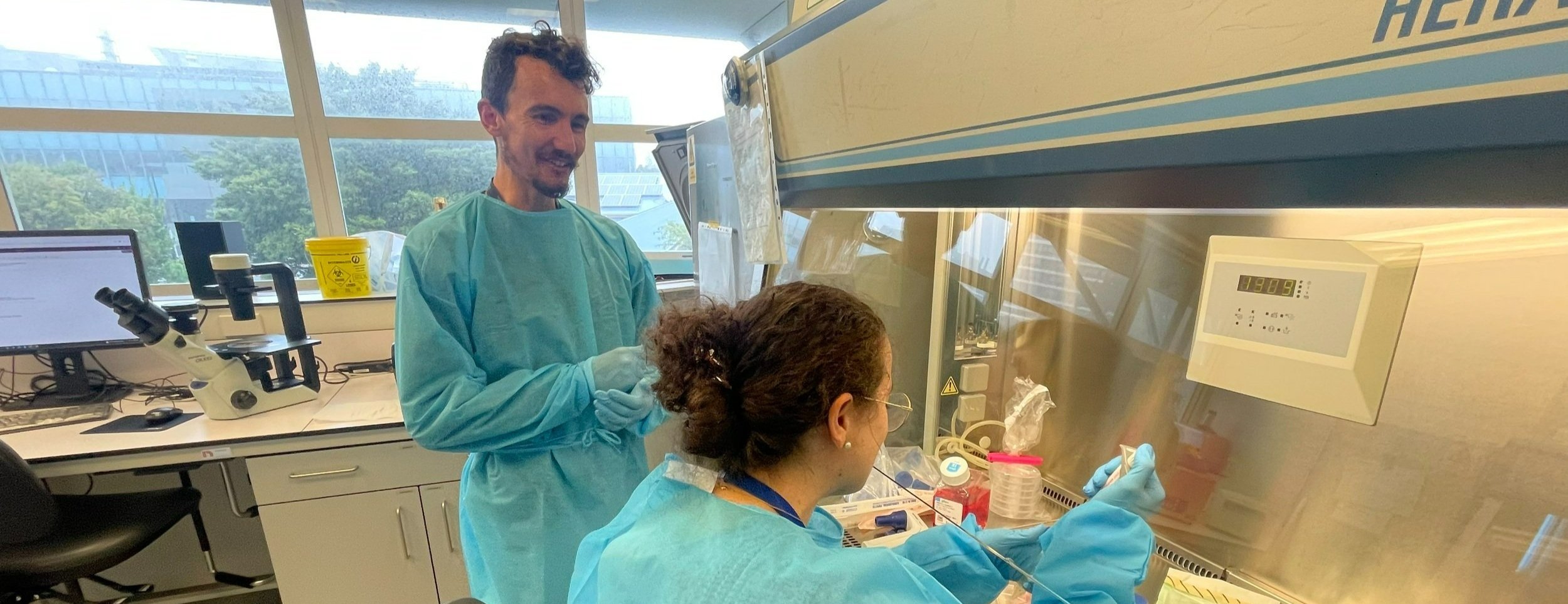
Meningioma Research
Understanding Meningiomas: What You Need to Know
Meningiomas are tumours that develop in the meninges, the protective membranes that surround the brain and spinal cord. They are usually slow-growing and benign, but in some cases they can become malignant and aggressive. Receiving a diagnosis of a meningioma can be concerning, but understanding the condition can help you navigate your treatment journey.
Current Treatment Options
Treatment options for meningiomas include observation, surgery, radiation therapy, or a combination of these approaches. The chosen treatment depends on the location and size of the tumour, as well as your overall health. The prognosis for meningiomas is generally good, especially for those that are benign and surgically removed. However, in some cases, meningiomas can recur after treatment or become malignant.
At the Gillies McIndoe Research Institute, we understand the importance of regular monitoring and follow-up care for those with meningiomas, to detect any changes or recurrences early. Our team is committed to improving outcomes for patients facing this diagnosis.
How We're Advancing Research
Our research into meningiomas is ongoing. We are focusing on improving the understanding of the disease, identifying factors that may contribute to its development, and developing new treatments primarily using repurposed drugs that are off-patent, cheap and safe to use.
Another focus is on developing better methods of understanding the genetic and molecular mechanisms underlying the disease. For instance, meningioma is two to three times more common in women than in men. Advances in organoid technology, proteomics, lipidomics, and immune therapies will help to identify specific alterations that are associated with meningioma development, which may lead to new targeted therapies.
Importance of Our Research
The innovative work of our PhD students is critical to advancing our understanding and treatment of meningiomas. Below, you'll find detailed information about their projects, publications, and achievements.
PhD Student Projects
Meningioma is the most common type of central nervous system tumour, affecting thousands of people worldwide. While many cases are considered benign, they can still require treatment, typically through surgery and, in more aggressive cases, radiation. However, there is currently no approved systemic drug treatment for meningioma, highlighting the need for new therapeutic strategies.
Clara’s research focuses on understanding the hormonal influence and sex-specific differences in drug metabolism between two meningioma subtypes—Grade I meningothelial meningioma and Grade II atypical meningioma. Meningiomas are twice as common in women, and this disparity increases to 3:1 during reproductive years, suggesting a role for sex hormones. However, the mechanisms behind this difference remain unclear. By analysing how these tumours differ between men and women at a molecular level, Clara aims to identify potential drug targets that could lead to more effective treatments.
Stay up to date on Clara’s progress by subscribing to our newsletter and joining the conversation on social media (links below)
Research Focus:
Investigating the hormonal influence and sex-specific effects on drug metabolism in meningioma subtypes.
Current Thesis Title:
"Exploring the Hormonal Influence and Sex-specific Effects on Drug Metabolism in Meningothelial and Atypical Meningioma"
Abstract:
Meningioma, the most common tumour of the central nervous system, accounts for a significant proportion of brain tumours worldwide. While most meningiomas are classified as benign (Grade I), a subset—including atypical meningiomas (Grade II)—can display aggressive features such as high mitotic activity and necrosis, increasing the risk of recurrence and complicating treatment. Currently, surgical resection remains the primary treatment, often combined with radiation in more aggressive cases. However, the absence of systemic drug therapies underscores the need for novel treatment strategies.
One of the most striking aspects of meningioma biology is its sex disparity. Women are twice as likely to develop meningiomas as men, with incidence rates rising to 3:1 during reproductive years. While hormonal influence has been suggested as a key factor, the mechanisms underlying this sex difference remain poorly understood. Clara’s research investigates how sex hormones influence meningioma formation, progression, and response to drug metabolism in different tumour subtypes. By comparing Grade I meningothelial meningiomas and Grade II atypical meningiomas, this study aims to uncover critical molecular differences that could inform targeted therapies.
Collaborate with Clara:
A deeper understanding of the sex-specific biology of meningiomas could pave the way for precision medicine approaches, leading to more effective and personalised treatments. Scientists and clinicians interested in tumour sex differences, hormone-related cancers, or drug metabolism in brain tumours are encouraged to collaborate.
Published Work:
Modelling Meningioma Using Organoids: A Review of Methodologies and Applications. Frontiers in Oncology, 2024 –– Read the Published Work
Collaborate With Us
Our research is built on collaboration and innovation. If you’re a scientist or industry professional interested in partnering with us or supporting our PhD students and post-docs, we’d love to hear from you. Together, we can push the boundaries of medical research and improve outcomes for patients with Glioblastoma.
📩 Contact us: info@gmri.org.nz
Support
Gillies McIndoe Research Institute is a Registered Charity (CC43660) relying mainly on private philanthropy, including donations, bequests, corporate champions, grants and scholarships. You can donate now or contact us to learn how you can support us and enable our research to continue.

